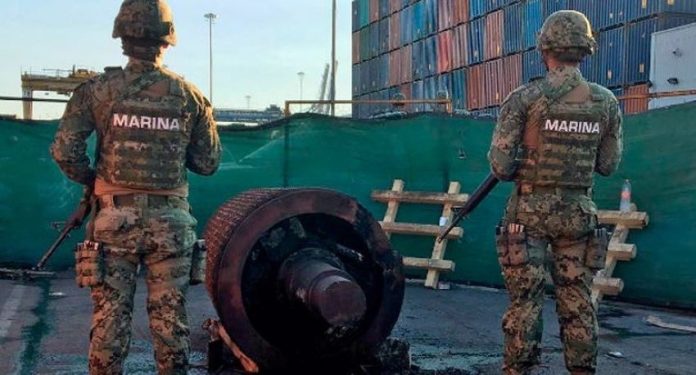Criminal groups that once dedicated themselves to tapping state-owned petroleum pipelines are now focused on smuggling fuel into the country.
According to a report published Thursday by the newspaper Reforma, bands of former huachicoleros, or fuel thieves, are colluding with customs officials to bring fuel into Mexico illegally via marine ports and the northern border.
The collusion is mainly taking place at land borders in the Tamaulipas cities of Reynosa, Matamoros and Nuevo Laredo, and at the Altamira and Tampico ports in the same state.
Citing federal sources, Reforma said that dozens of tanker trucks are entering the country every day carrying fuel purchased in Texas that is not officially reported to customs. The newspaper also said that fuel is imported with false documentation that allows importers to avoid taxes.
In addition, the report said that criminal groups are taking stolen fuel out to sea on vessels that subsequently return to Mexican ports and pass the fuel through customs with fake import permits to “legalize” it — fuel laundering, in other words.
“Fuel theft is now [occurring] in foreign trade,” Raquel Buenrostro, head of the federal tax agency SAT, said in a recent meeting with lawmakers.
“They steal [fuel] in the Gulf [of Mexico], take it out to open sea and bring it back in with fake import licenses. As it is stolen, it was worth paying taxes. Now they [criminal groups] don’t even pay them,” she said.
Buenrostro said the SAT, which oversees customs, is working to resolve the fake import permits issue.
According to federal reports, once fuel is smuggled into the country it is transported to gas stations in the northeast of Mexico that are operated by criminal groups. The army and navy, which were last year given the task of eliminating corruption at ports of entry, have ramped up supervision of customs in recent weeks in an attempt to stop the illegal importation of gasoline and diesel, Reforma said.
The federal government’s Financial Intelligence Unit (UIF), the National Guard and customs are all investigating criminal networks that operate at land borders and ports. The UIF is investigating the transportation, storage and sale of smuggled fuel in order to identify the money trail of criminal groups.
According to the SAT, its tax revenues have fallen due to the illegal importation of fuel. The agency reported that its IEPS excise tax revenue declined by 20.3 billion pesos (US $1 billion), or 35.7%, in the first quarter of 2021 compared to the same period of last year.
“This situation is due to the smuggling … of fuel. The smuggling is carried out by … organized crime. … In addition to having a negative impact on tax collection, it affects fair competition in the [fuel] market,” the SAT said in a statement.
Source: Reforma (sp)
